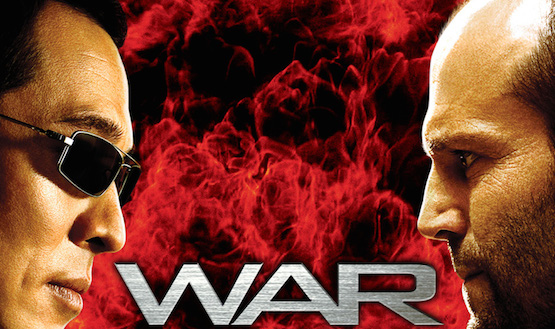 Suppose they gave a war but nobody came…
Suppose they gave a war but nobody came…
That’s clearly the case in the month-old conflict between KC-based AMC and tiny newcomer Cinetopia of Beaverton, Oregon.
However, it’s not the combatants who are missing in action in the movie war between the new Cinetopia’s new Overland Park 18 and AMC’s Town Center 20, it’s the local news media. A media either too short handed and/or fearful of pissing off a pair of influential advertisers.
Nonetheless, a battle of monumental proportions is going down behind the scenes, bubbling just below the surface as Cinetopia in Prairie Fire attempts to gain a foothold and stand its ground against the an industry giant that appears determined to drive its new rival into an early grave .
In a perfect world, all Hollywood releases would be allocated to both plexes.
Unfortunately for consumers, AMC has refused to play blockbuster new movies “day and date” – in other words at the same time as Cinetopia – which is effective;y forcing film distributors into allocating movies to one theater or the other.
Wanna see the kickass new Transformers? Lucky you, it’s now showing at Kansas City’s finest movieplex by far Cinetopia. Come 4th of July weekend however, you won’t be able to see Rolling Stone magazine covergrrrl Melissa McCarthy‘s new blockbuster Tammy there because AMC has it sewed up at Town Center.
Wanna see Dawn of the Planet of the Apes when it debuts Thursday July 10?
That’s a whole mother matter. You can see it at AMC’s Studio 30 Olathe or at the crappy Regal Southwind 12 in Lawrence no problem (just keep an eye out for mice at the latter).
But mum’s the word on which of the two warring theaters will be carrying it, because neither Town Center or Cinetopia have listed what movies they will be playing that weekend.
 “Starting in July the film companies will be alternating films between the two theaters,” says a local movie insider.
“Starting in July the film companies will be alternating films between the two theaters,” says a local movie insider.
Raising the obvious question, how long can Cinetopia survive having plowed millions into its state-of-the-art new theater hear flying on one wing with only half of the blockbuster movies?
“That’s a good question,” says the source. “Cinetopia owner Rudyard Coltman’s a lawyer, he may sue the film companies or AMC. It’ll be interesting, a lot of people in the industry are watching this. But he probably knew going in that AMC wasn’t going to sit back and take it.
Some people in the business think that a year from now that theater will have AMC’s name on it because Cinetopia will leave the market. But nobody thinks AMC will give in unless they’re forced to give in.”
As for the looming battle, “There are seven film distributors and every one of those distributors have come to Kansas City in the last month to look over the situation,” says the source. “To look over Cinetopia’s new theater so they have the complete picture of the situation. And trust me, the film distributors don’t go to every damn opening of a theater, but they sure looked over this one in Southern Johnson County.”
What’s more, sources say Coltman’s taken up residency here to oversee the theater’s launch and likely come to terms with what course of action to take.
One possibility: that Cinetopia join an antitrust lawsuit against AMC filed this past January by the Alabama-based movie theater chain Cobb Theaters. A lawsuit that claims that AMC leveraged its worldwide market power “to coerce film distributors to deprive competitors of access to studio films.”
AMC reportedly owns around 350 theaters with roughly 5,000 screens, compared to Cobb’s 19 theaters and 231 screens.
According to Cobb’s lawsuit, AMC lost out to Cobb in a competition to lease space for an Atlanta, Georgia theater and afterward “used its worldwide market power to coerce film distributors to deprive competitors of access to studio films,” according to the Hollywood Reporter. “Cobb says major film studios complied with the demand, and as a result, they’ve been shortchanged on the bigger movies.”
Sound familiar? AMC has been rumored for years to have expressed an interest in opening a new theater in southern Overland Park.
Cobb’s outlines the basis for its lawsuit against AMC in its 42 page lawsuit, starting with that, “In recent years, most distributors have adopted a ‘wide release’; strategy for the majority of their films, whereby they try to earn as much revenue as possible in the first several weeks after release by showing the film on as many screens and in as many theaters as possible. Release date ‘screen count,’ the number of screens on which a film is exhibited on the date of its release, has become an important measure of a film’s success from the distributors’ perspective.”
And adding, “Circuit deals” are agreements or understandings, express or implied, whereby dominant exhibitor circuits use their circuit and market power to obtain, among other preferential film licensing treatment, clearance agreements that exclude other exhibitors from playing motion pictures day and date or at all on first run, despite the fact that such clearance agreements are not in the independent economic best interest of the distributors coerced or induced to grant such clearances.
Circuit deals have long been illegal under antitrust law as set forth, inter alia, by the United States Supreme Court decisions in United States v. Griffith, 334 U.S. 100 (1948), and United States v. Crescent Amusement Co., 323 U.S. 173 (1944), and violate the antitrust requirement that films be licensed on a theater by theater, film by film basis, as set forth in United States v. Paramount Pictures, Inc., 334 U.S. 131 (1948).”
According to the lawsuit, AMC controls 69 percent of the screens in the zone.
The lawsuit also takes aim at AMC CEO Gerry Lopez, a former coffee executive who joined AMC in 2009.
“Prior to approximately 2009, AMC generally did not demand clearances over nearby competing theaters throughout the United States. Instead, it competed on the merits,” the lawsuit states.
And post Lopez arrival, “AMC began a national exclusionary campaign in which it used its dominant circuit position, and its monopoly power in a substantial number of film licensing and exhibition zones, to demand unreasonable clearances over other exhibitors in competitive zones,” it continues.
Cobb’s moneyshot:
“Pursuant to this campaign, in the Fall of 2010, Rich Boynton, Senior Vice President and Head Film Buyer for the AMC Phipps Plaza 14 and the AMC Fork & Screen Buckhead, sent a letter to the major film distributors in which he stated:
[The Brookhaven CinéBistro] is 1.9 miles northeast of our AMC PHIPPS 14 and 2.5 miles northeast of our AMC FORK & SCREEN BUCKHEAD 6,1 and thus we will not play day-and-date with a venue at this location. . . . We have played 100% of your wide commercial releases and look forward to continuing that arrangement going forward.”
According to Cobb’s lawsuit, Boynton’s letter was “a de facto demand by AMC for preferential or exclusive film licensing treatment over the Brookhaven CinéBistro,” a demand that “distributors (1) refuse to license certain films to the Brookhaven CinéBistro or else risk being denied the grossing potential of AMC’s Buckhead theaters and, implicitly, some or all of the theaters in its entire circuit, and that they (2) allow AMC to play films at its two Buckhead theaters day and date but refuse to license the Brookhaven CinéBistro for day and date play with those same theaters.”
Get the picture.?
“In response to AMC’s letter, several of the major film distributors began honoring AMC’s demand for preferential treatment/clearance/exclusivity by (1) allocating films between AMC’s Buckhead theaters and the Brookhaven CinéBistro, with the Brookhaven CinéBistro generally being allocated substantially fewer of the highest-grossing, most popular films, and (2) conditioning the license of high-grossing, popular films to the Brookhaven CinéBistro on its agreement to play such films on several, i.e., 3–4, of its 7 screens. These practices continue today.”
“AMC has used and is using its worldwide and national circuit power, and its monopoly power in a substantial number of non-competitive zones—not its superiority on the merits—to raise those barriers even higher and to prevent other exhibitors, including Cobb, from competing for those few scarce real estate opportunities and, in turn, from competing with AMC for film licenses and customers.”
Absent the specifics, Cobb’s lawsuit appears to mirror the situation Cinetopia faces here with its Overland Park 18.
“Lopez changed the whole ballgame at AMC,” the source says. Under former AMC head Peter Brown, AMC would play day and date with anybody. But Lopez took the attitude, don’t fuck with us.”
Stay tuned…













Rats in Lawrence? Say it ain’t so hearne, say it ain’t so…
Sounds like Lopez learned the Walmart Playbook very well.
Usually, you would think a battle of Titans would result in lower prices.
Popcorn still runs about the same as an 8 Ball in these joints, even when they are measuring thier hang downs.
These kinds of competitive “theater operator wars” are really nothing new in the Kansas City area.
In the 1920s through the 1940s, there was NO Johnson County south of Mission, Kansas or west of Prairie Village. My late grandfather, W. Lee Vaughan, owned a chain of theaters across Kansas City, Kansas. During the height of movie theaters (before TV), the formerly KCMO-owned Dickinson chain and whatever AMC was known as then (the late Stan Durwood owner-KCMO) would not allow my Grandfather Vaughan’s theaters to have access to FIRST-RUN releases in Kansas City, KANSAS.
A long court battle finally defeated that tactic about 1947. Under the laws in affect at the time, a ruling held that such “restraint of trade in what was essentially one market ” (the two Kansas Citys) was illegal.
Kansas City, KANSAS theaters (Electric, Jayhawk, The Avenue, Home Theater, The (Historic) Granada, Midway, Vox Theater, Osage, The Gauntier and all of the others were then able to compete on a legal footing after winning in court.
Just thought readers might want to know this kind of “war between operators/ owners) is NOTHING NEW in Kansas City! (Only the dates and people change!)
Joe Vaughan
I was thinking the same thing Joe. Except in the 70’s. Remember when Glenwood had the exclusive on Star Wars? for almost 2 years! I finally saw it in Olathe 2 years after release.
Thanks Joe,
That was a loooooong time ago though.
And the anti trust laws and rulings make for a different mindset.
Jeez, even the Star got their wrists slapped for unfair business practices against the JOCO Sun back “in the day”